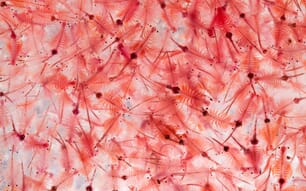According to reporting in Expreso, Ecuador has opened the plant in order to improve the nutrition and product quality of their shrimp exports. Though Ecuador is a major shrimp exporter, it has needed to import artemia, a major component of shrimp feed, from the US and Russia. Currently, the new larva laboratories are producing and processing artemia locally, gaining greater control over the supply chain and making the process more efficient.
The labs, run by Codemet and the Belgian company I&V BIO, will use cryptobiosis to produce artemia. The process takes advantage of artemia’s ability to enter a stage of suspended animation where metabolic processes stop. This allows researchers to suspend the artemia after they lay their eggs and after they hatch, ensuring maximum production of biomass. The process also improves the artemia’s nutrition levels and reduces their bacteria load.
The plant was opened by Ecuador’s Vice President, Otto Sonnenholzner. In his speech, he highlighted the growth of Ecuador’s shrimp sector and the challenges it will face in the coming year. Though the sector is expected to grow in the next decade, shrimp producers need to stay ahead of the technological curve while remaining sustainable.


